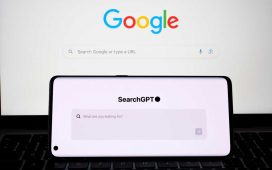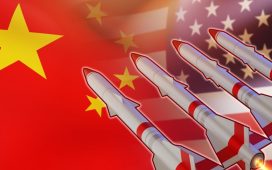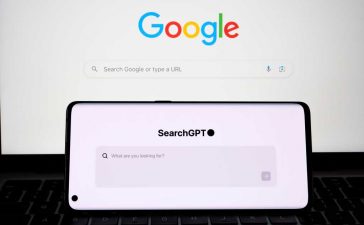UK tech tycoon Mike Lynch is running out of options in his efforts to avoid extradition to the US to face wire and securities fraud, conspiracy, and similar charges in connection with the $11 billion sale in 2011 of his software company Autonomy to Hewlett-Packard.
In a ruling today, the High Court of England and Wales in London rejected his request to overturn the decision in January 2022 by Priti Patel – at the time the UK’s home secretary – to approve his extradition to the US for trials.
Lynch for years has denied the accusations and said through a spokesperson that he will determine his next steps, which could include an appeal to the European Court of Human Rights (ECHR), which Brexit Britain is still signed up to. He has argued that America’s push to extradite him from the UK to the US amounted to legal overreach that threatened the UK’s sovereignty and its citizens.
However, the High Court saw it differently, knocking down each of the arguments for appeal Lynch put forth, including his claim that the charges didn’t rise to the level allowing for extradition, that it was barred because of how much time had passed, that there were human rights grounds due to treatments Lynch would need in prison for medical conditions, and that the US wasn’t the proper place for the case.
He also said the extradition request was an abuse of process.
“We have concluded that none of the grounds of appeal are arguable, and we therefore refuse permission to appeal,” the judges ruled.
Over the past several years, Lynch and his attorneys have fought – and lost – efforts to keep him from being sent off to the US. In a hearing March, his lawyers argued Lynch should be put on trial in the UK, where the country’s Serious Fraud Office said it was prepared to prosecute him if he wasn’t extradited.
However, American prosecutors argued against it, noting some of the alleged criminal acts took place in the US and pointed to the harm to HP – a Silicon Valley stalwart – and its investors. The British justices agreed.
“The fact is that the loss was felt by HP, or its shareholders the majority of whom were based in the US,” they wrote.
HP … acquired an asset for which it paid $11.7 billion but the value of the asset had been vastly overstated and it was worth billions less than the purchase price
“HP acquired the shares in Autonomy, using a company that HP wholly owned, and HP provided the funds for purchasing Autonomy. Put differently, HP … acquired an asset for which it paid $11.7 billion but the value of the asset had been vastly overstated and it was worth billions less than the purchase price paid by HP. As such, the loss was mainly suffered in the US.”
The decision shuts off most of the remaining legal avenues for Lynch. His spokesperson opined that the ECHR was an option, but it seems unlikely that his argument would win out. Thomas Garner, partner and extradition lawyer at London law firm Fladgate, commented appeals to the ECHR – also known as the Strasbourg Court – can only be based on narrow human rights grounds.
Notably, much of Lynch’s argument to the High Court was that the US wasn’t the proper forum for a trial rather than human rights concerns. He could also ask the ECHR for an injunction to the extradition order, which Garner said is rare.
“It does work occasionally, but you are ordinarily looking at cases where the focus is on physical risks to the person in custody or where an individual has serious medical conditions that would result in death if the individual were removed,” he told The Register.
He noted that a full application to the ECHR could take months or years before a hearing is held if the court decided to hear the case. However, “an application for urgent interim measures would be decided quickly. The application would only prevent his removal if he succeeded in securing interim measures,” Garner said.
HP in 2011 – four years before it split in HP Inc and HPE – wanted to build up its software business, seeing enterprise IT trends moving away from hardware sales. After more than a year of negotiations, it agreed to buy Autonomy and its enterprise software business.
However, soon after the deal closed HP executives accused Lynch and other Autonomy officials of cooking the books and lying about Autonomy’s business and within a year wrote off $8.8 billion of Autonomy’s value. HP in 2017 sold the Autonomy assets to Micro Focus.
After acquiring Autonomy, HP sued Lynch in the High Court. HP won the six-year court in 2022 after a High Court judge found Lynch guilty of defrauding HP by inflating the value of the software company.
The one-time finance director at Autonomy, Sushovan Hussain, is serving a five-year sentence in the US after being convicted of fraud in 2019 in connection with the deal with HP.
The Register has reached out to HP for comment, as well as to UK-based cybersecurity firm Darktrace, in which Lynch’s investment fund – Invoke Capital – was its first investor and reportedly continues to hold a 4.2 percent stake. Lynch and his wife, Angela Bacares, still hold a significant share of Darktrace, though in February the couple sold about $124 million in the business’s shares.
A Darktrace spokesperson told The Guardian that Lynch has “no operational, advisory or any other role at Darktrace,” adding that his only connection was through the shares he still holds. ®












